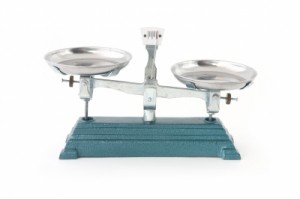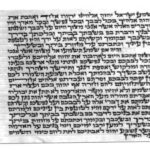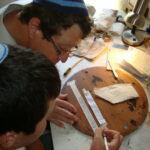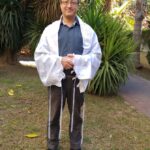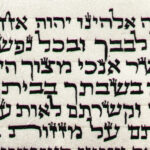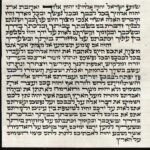Vayakhel – Creativity in Judaism
Imagine if a physicist had Ruach Hakodesh and could design a truly safe Nuclear Power plant.
How does this relate to ordinary creativity? What really is creativity? and how does a person become creative? These question have been asked for centuries.
In Our Perasha it says (Shemot 36 – 1)
And Betzalel, Aholiav and each person of thoughtful heart to whom G-d gave wisdom and insight to know and do all holy work, they did everything which G-d commanded.

Perhaps a discussion about these talented craftsmen can give us some insight into the nature of creativity.
Psychologists have discussed whether the “Aha” syndrome exists? The “Aha” syndrome is a sudden zap of creative energy which enables a person to immediately and sometimes miraculously understand something. (Creativity: Genius and other myths, Robert Weisberg) Perhaps the “Aha” syndrome is the wisdom which G-d gave Betzalel.
Rashi, in his explanation for Perashat Ki Tisa, explains the following Pasuk (Shemot 31 -3):
I will fill him with the spirit of G-d, with wisdom, insight and knowledge of every craft to think thought to make with gold, silver and brass.
Rashi says that wisdom refers to knowledge which is learned from others. Insight (tvunah) refers to developing something new from something that was already known. Knowledge, however, refers to Ruach Hakodesh which is, perhaps, wisdom that is G-d given. It says in our Pasuk (36-1) that G-d gave knowledge to those thoughtful people.
Here we see three different types of “knowledge.” The second type refers to what we call creativity. The last type which Rashi called Wisdom comes from G-d and is far better than ordinary creative energy.
We can understand the answer to our question according to Rashi.

A creative burst of energy which may be experienced by a Scientist is certainly the second type. This creative burst is the combining of all that he has previously learned. It all comes together to make a major discovery.

According to Ibn Ezra, Betzalel and Aholiav were the greatest craftsmen of their day. These artisans used what was then state of the art methods to build the Mishkan. They used their knowledge to improve the different methods used to construct it.
The “knowledge” which Rashi refers to was what they learned from G-d himself about how things must look and how they should be done. Knowledge from G-d through Ruach Hakodesh is certainly superior to the shortcoming of even the greatest Human mind.
G-d made the Sun which is a huge Nuclear power plant. He could choose to impart this knowledge on to the new “Artisans.”


